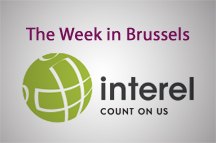 “I’m not hearing any whistling, just a clock ticking”
“I’m not hearing any whistling, just a clock ticking”
Michel Barnier’s riposte to Boris Johnson’s ‘go whistle” throw-away line was delivered in his usual deadpan style but could not disguise the growing unease in Brussels that the UK is simply not taking the talks seriously enough. How can we negotiate when we have no UK position to discuss he lamented, with the EU currently leading 9-1 on the number of negotiating papers submitted (sorry, make that 9-4 as David Davis comes in with a late hat-trick of proposals). However, it is the lack of a British position on the sensitive issue of budget obligations that is proving the main stumbling block and Barnier warned that without movement on this key aspect, there would be no progress on future trade talks. Guy Verhofstadt, the European Parliament’s Brexit coordinator, announced that they would be tabling new resolutions to shape the talks in September and could assess as early as October whether “sufficient progress” has been made on the three key exit issues – citizens’ rights, the exit bill and the Irish border – to move onto talks on the future relationship. However, if the muted reaction to Theresa May’s “big and generous” offer on citizens’ rights is anything to go by, it’s going to be a long summer for the negotiators.
 Situation vacant: short-term contract as British MEP
Situation vacant: short-term contract as British MEP
With a life expectancy down to two years and counting, British MEPs seem to be rushing to the exit door. Large numbers of them tried to be selected for the general election, with just four managing to win seats. A fifth, Ian Duncan, lost out by only 21 votes, but won the consolation prize of a seat in the Lords and a post in the Scottish office. Meanwhile, Labour leader, Glenis Willmott, has just announced her decision to retire. What to do with the 72 vacant British seats after 2019 has been concentrating minds. The logical choice would be to take the opportunity to reduce numbers below 700, which would still make the European Parliament the second largest legislature after the Chinese National People’s Congress. However, some countries are greedily eyeing up the opportunity to correct perceived imbalances in their representation and add an extra MEP or two. Meanwhile, federalists see this as a golden opportunity to finally have pan-European lists, elected not on the basis of nationality but party affiliation. As with the thorny issue of the Strasbourg seat, it will be left to national leaders to decide rather than MEPs themselves.
Estonia takes over EU presidency
Estonian Ministers flooded the parliament’s committees this week, setting out the priorities for their six-month presidency. “Unity through balance” is their slogan, and they will work closely with the Bulgarians and Austrians who complete the next trio of presidencies. Estonia will focus heavily on innovation and how to make the most of the opportunities offered by the digital revolution. This of course was the period when the UK should have chaired Council meetings. Labour MEP Paul Brannen was particularly effusive in his welcome to the Estonian Environment Minister – “I’m so glad it’s you today and not Michael Gove”.














